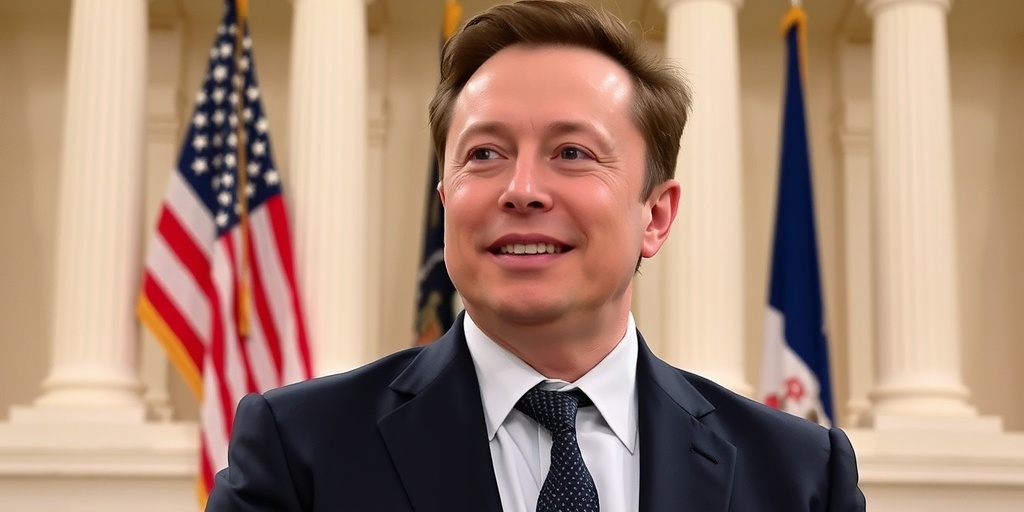Now Reading: Chip Roy Votes Due to Promised Deep Entitlement Cuts
-
01
Chip Roy Votes Due to Promised Deep Entitlement Cuts
Chip Roy Votes Due to Promised Deep Entitlement Cuts

Title: House Adopts Republican Budget Blueprint Amid Internal Disagreements
In a significant move, the House of Representatives voted on Thursday to adopt the Republican budget blueprint, which aims to drastically cut taxes and government spending. However, this resolution faced considerable resistance and highlighted divisions within the Republican Party regarding the extent of budgetary cuts. Notably, Representative Chip Roy of Texas emerged as a key figure in this debate.
Prior to the vote, Representative Roy had publicly expressed his dissatisfaction with the proposed budget, questioning its commitment to meaningful cuts in government programs. He repeatedly articulated his concerns to reporters, emphasizing, “The math isn’t mathing.” Despite his reservations, Roy ultimately joined over a dozen Republican colleagues in supporting the measure.
Following the vote, Roy provided clarity on his unexpected shift in stance. He disclosed that his support was granted “reluctantly” after receiving assurances from President Trump, as well as the leadership of the House and Senate, regarding forthcoming deeper cuts to entitlement programs, including Medicaid, and a complete elimination of clean energy tax credits. This private commitment was crucial for Roy and his fellow conservatives, who have been advocating for more substantial spending reductions, especially in programs that benefit low-income individuals and families.
Roy emphasized that the promises made by Trump and congressional leaders were essential to maintain the desired spending cuts that some senators had previously resisted. However, he quickly pointed out that the execution of these promises would be a challenging endeavor, given the complexities of passing legislation that satisfies all factions within the party.
In detail, Roy stated that Trump had pledged to implement “a minimum of $1 trillion in real reductions in mandatory spending,” a category of federal funding primarily allocated to entitlement programs that serve the elderly, veterans, and other vulnerable populations. Furthermore, he highlighted commitments from the president to repeal subsidies linked to clean energy initiatives outlined in the Inflation Reduction Act, alongside proposed reforms to Medicaid that address issues of eligibility, fraud, and abuse.
The Republican agenda, however, does not come without opposition. Moderates within both the House and Senate have voiced their concerns regarding the proposed cuts to vital safety net programs like Medicaid. They are particularly wary of the complete rollback of the Inflation Reduction Act, aimed at preserving the clean energy tax credits that benefit businesses within their respective districts and states.
In a related commitment, Speaker of the House Mike Johnson has reportedly assured Roy that the House’s budget framework will directly link tax cuts to corresponding spending cuts. The Republicans have made a bold promise: if Congress fails to identify at least $2 trillion in spending reductions, the proposed tax cut, initially projected at $4.5 trillion, will be proportionally scaled back. For example, should the identified spending cuts only amount to $1.5 trillion—a baseline set in the budget plan—the tax cut could shrink down to $4 trillion.
Roy further noted his expectation that Senate Republicans, particularly under the leadership of Senator John Thune of South Dakota, would validate a minimum of $1.5 trillion in spending cuts. House Republicans are confident that a significant portion of these reductions will be pursued through the Medicaid oversight committee.
Despite his support for the budget package, Roy has made it unequivocally clear that his decision is contingent upon the fulfillment of the aforementioned promises. “In the interest of comity, I will take them at their word,” he stated. However, he firmly warned that failure to meet these baselines, including maintaining deficit neutrality, would render it impossible for him to back any final reconciliation product that emerges from the legislative process.
This unfolding scenario illustrates the delicate balancing act the Republican Party faces as it navigates internal divisions to advance its fiscal agenda. The intricate web of commitments made by party leaders serves not only as a negotiating tactic but also as a reflection of the varying priorities among Republican lawmakers, as they grapple with the implications of cutting essential services while attempting to adhere to their broader financial goals. As such, the future of this budget blueprint and its proposed cuts remains to be seen, with both support and opposition coalescing around different interpretations of fiscal responsibility. The coming weeks will reveal the party’s ability to align its various factions behind a cohesive legislative strategy.
Stay Informed With the Latest & Most Important News
Previous Post
Next Post
-
 01New technology breakthrough has everyone talking right now
01New technology breakthrough has everyone talking right now -
 02Unbelievable life hack everyone needs to try today
02Unbelievable life hack everyone needs to try today -
 03Fascinating discovery found buried deep beneath the ocean
03Fascinating discovery found buried deep beneath the ocean -
 04Man invents genius device that solves everyday problems
04Man invents genius device that solves everyday problems -
 05Shocking discovery that changes what we know forever
05Shocking discovery that changes what we know forever -
 06Internet goes wild over celebrity’s unexpected fashion choice
06Internet goes wild over celebrity’s unexpected fashion choice -
 07Rare animal sighting stuns scientists and wildlife lovers
07Rare animal sighting stuns scientists and wildlife lovers





















